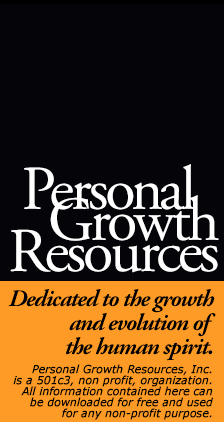|
Understanding and Overcoming Depression Discover the Healing Power of Inner Dialoging Susan M. Mumm, MA |
The first step towards understanding depression is to clearly define the word itself. Many people would
describe depression as a feeling; the phrase “I’m feeling depressed” is a common use of the word. This is
actually a misconception. Depression is actually a condition. The actual feelings associated with the state
of depression are sadness, boredom/stagnation, despair or hopelessness, unexpressed anger, and in the
physical realm, lethargy. Depression is characterized not only by these feelings, but with associated
behaviors such as withdrawal from and non-interest in normal activities, difficulty performing normal life
maintenance tasks, and disruption of normal eating and sleeping patterns. This distinction between a feeling
and a condition may on the surface appear inconsequential, but I have come to conclude that is it, in fact,
very significant when trying to overcome the condition of depression. It is much, much easier for a person
to tackle the question “Why am I feeling sad? or Why am I feeling stagnated?” than “Why am I feeling
depressed?” It is also easier for a person to reflect upon the question “Are there things I might be angry
about that I am not expressing?, or “What might be causing me to feel hopeless about my life situation?
Another useful thing to know about the feelings associated with depression is that human feelings are a
“package deal”. Sometimes people feel so overwhelmed by some of their feelings (usually sadness or anger)
that they want to shut them off. It is possible for people to shut their feelings off, but what happens is, that
not only does the sadness or anger get shut off, but all the good feelings as well such as joyfulness,
excitement etc. You can turn your feelings valve off or on (at least for awhile) but you can’t turn some on
and some off. This is why people who are seriously depressed appear to have no feelings at all; the are
emotionally “flat”. The logical second step to understanding depression is to clear up contaminated information you may have as to the causes of depression. The debate that always ensues in any discussion about the cause of depression is “Is depression caused by bio-chemistry, or environmental factors ?” The correct answer is that it is a combination of both. It makes no sense to propose that depression is 100% bio-chemical, because how would you account for the astronomical rise in depression in the last several decades? Did millions of peoples’ biochemistry suddenly simultaneously mutate? It is also illogical to conclude that depression is 100% environmental. There are many people whose life situations are extremely harsh, dysfunctional, tragic, etc., who do not end up depressed, and there are, conversely, people who seem to have everything going for them who end up committing suicide. Using the combination theory, the cause of depression can be explained as follows: There is always a certain percentage of the population who are bio-chemically susceptible to depression. Whether or not these people actually end up depressed depends on the personal environment as well as the socio/political environments in which such people function. |
This site owned and operated by: Susan M. Mumm, MA, Licensed Professional Counselor
info@personalgrowthresources.org | Personal Growth Resources, Inc. | Ann Arbor, MI | (734) 913-5859


